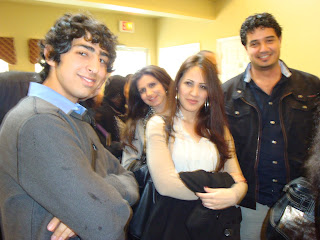By: Ali Rawaf
After the Islamic revolution in Iran, many actions were taken to make the country more conservative. The new government at the time cracked down on Cinemas, theatres, music halls. The Khomeini government also shut down liquor stores, bars, and social clubs, all of which used to run freely under the Shah. I see similar actions being taken today in Iraq. Previously, I have written about the Iranian influence in Iraq in politics. I have been reading news about several changes in the social aspects of the Iraqi community, ones that I link to a religious Iranian influence projected to change the structure of our society.
Today, a few Parliament Members who represent minorities showed their objection to a recent decision taken by local authorities to shut down social clubs, bars, and some restaurants that serve alcohol. Kenna, a Parliament Member who represent the Christians in Iraq said the decision punishes the Christian minority unjustly, “Just because a few people who are not supposed to drink go to those social clubs and drink alcohol, those social clubs shouldn’t be closed,” said Kenna criticizing the recent law. Another Member, Mehma Khalil who represents the Yezidi ethnicity in Iraq said the law will drive minorities out of Iraq, “Many minorities run such businesses […] these venues are sources of income to many of these people.”
The reality is Iraq used to be known in the Middle East for alcohol. Iraq’s secular society used to receive Saudis and Kuwaitis who cross the border to come drink in their venues. Shutting down these venues will not only have a negative impact on the society by driving communities out of the country, it will also be one more factor that is detrimental to the economy. Even when Saddam Hussein tightened social norms* to win tribal support in the early 90’s, liquor stores and bars were still open.
 |
| Babylon Festival Hall, Oct 2010. Picture by al-Arabyia |
In 2004, Shiite militias such as the Mahdi Army cracked down on theatres, music halls, and video/CD stores in the south. The southern region is known for its prominence in the field of entertainment, especially music. In October, Iraqis celebrated the Babylon Festival, an annual festival where famous musicians and actors perform. This year music was banned in the Festival because it coincided with one Imam's birthday. The ban, as al-Arabyia puts it, “[left] most of the performers hailing all the way from Algeria, Azerbaijan, Denmark, Finland, Iran and Russia swaggering around the ruins of Babylon.”
This is frustrating because the toppling of Saddam’s statue was a symbol to many Iraqis that there will be more freedoms, not less. We also hoped that the government wouldn’t align itself with religious factions and religious ideologies. All of this begs the question, if the government will decide what you drink to what one should listen, where do we draw the line? And when will the people of Iraq speak out?
-----------------------------------------------------------------------------------------------------------
*The Washington Post article that is linked in the blog talk about Abu Nawas. Abu Nawas is one of Baghdad’s most famous streets. It is filled with sea food restaurants, night clubs, bars, and music halls. The street faced some difficulties during Saddam Hussein’s era but not to the extent that it is facing today. In February of 2009, the street was reopened after the US funded efforts to restore it. Soon after, the Iraqi local authorities cracked down on all of these venues, putting down hopes of restoring night life to Baghdad.



















